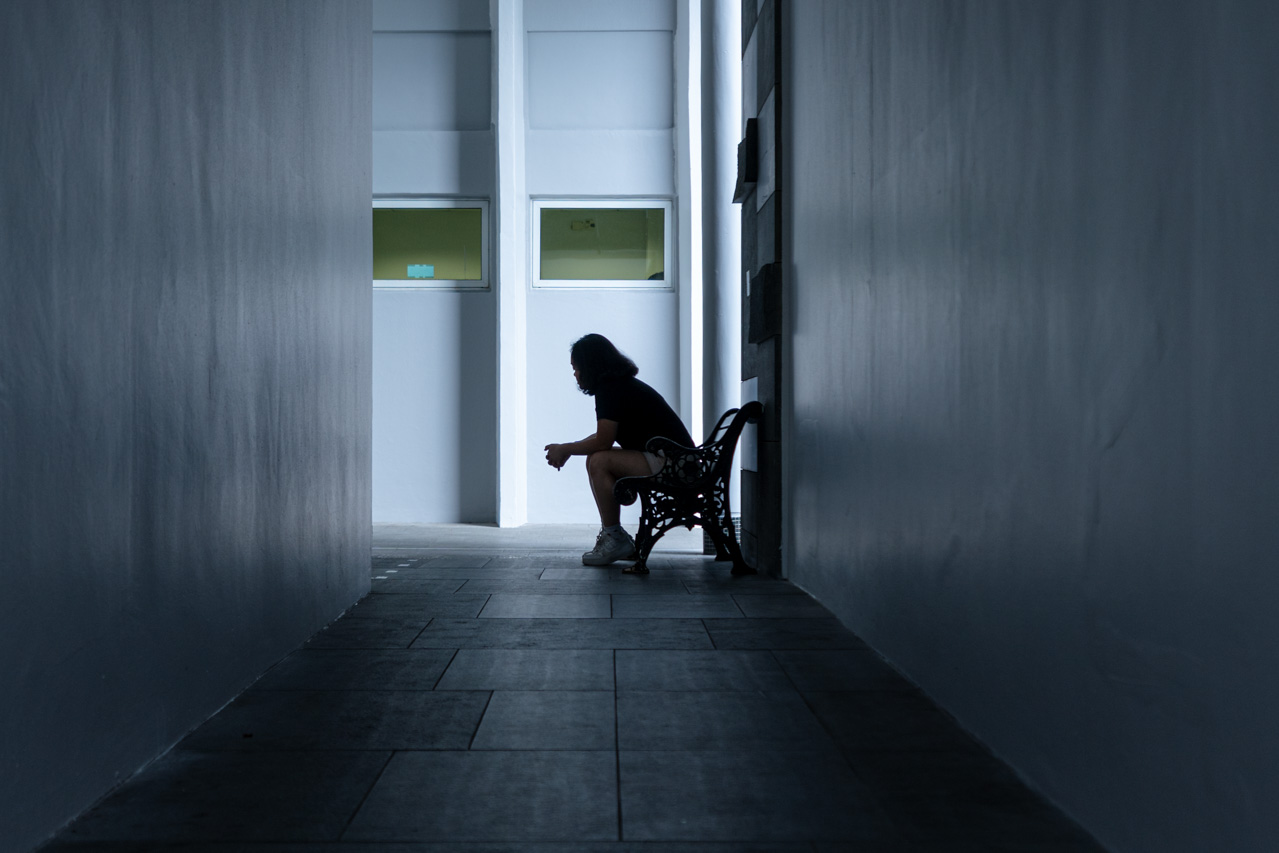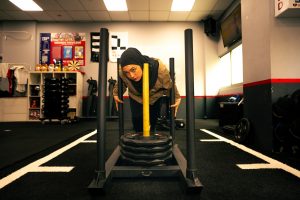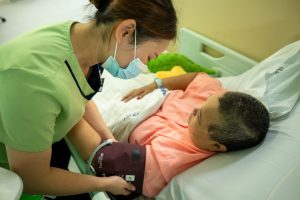All images by Nicholas Chang for RICE Media.
“The school counsellor told my mother I was a lesbian,” Evan* says. “Later, she told me it was because I said I listened to Troye Sivan.”
Evan is a 22-year-old trans man who still remembers the sting of betrayal from his secondary school counsellor, all those years ago.
I hear from another friend they got called a “psychopath” by a counsellor. Another had their counsellor see their cane marks and ask if they’d like to go to an orphanage. Yet another friend had a counsellor give him a stern speech about the supposed dangers of cross-dressing.
The point is—it’s not uncommon to have bad experiences with school counsellors.
These counsellors are touted as a respite for students in crisis. Most of the time, they get the job done, and students get the help and guidance they need. But there’s also a subset of people with experiences that are bizarre at best and outrageous at worst. They speak of counsellors breaching confidentiality, getting involved and making predicaments worse for their students, or otherwise leaving the student worse off for approaching them.
Even stranger is the fact that it’s secondary school counsellors who seem to behave badly. Most of the people I speak to who’ve sought help at universities have nothing but good things to say.
The tripping block, it seems, is at the starting line. Secondary school counsellors are often the first experience most Singaporean kids have with therapy of any sort. But errant behaviour is scaring people from looking for help again well into adulthood.
And if we’re on a nationwide effort to reform how we treat mental health, shouldn’t we start from the beginning?
Everything Stays In This Room
To be clear, not all school counsellors are bad. Plenty do their jobs well and go above and beyond for the students in their care, whether they’ve been referred to them or are there of their own volition.
Really, nothing has to be ‘wrong’ with a student for them to go to the counsellor.
Realistically, something usually is.
The student may be doing poorly in school, acting out in class, or just having a bad go of things. Counsellors help them with what they’re struggling with and send them off better than when they came in, ideally abiding by the standards the Ministry Of Education prescribes.
When RICE asked about the specifics of these standards, MOE clarified: “School counsellors are expected to conduct themselves in line with professional standards of counselling practice and protocol. Observing confidentiality of information is key for school counsellors to maintain trust with their students.”
“Mindful that the students are minors, school counsellors will also explain to students when they assess that it is necessary to involve their parents and/or teachers for support. This applies particularly when there are serious concerns about the student’s safety and wellbeing.”
It sounds about right. It’s what I’ve heard from counsellors growing up: “Unless you pose a threat to yourself or others, everything stays in this room.”
Somehow, some counsellors still run afoul of these standards. An informal poll RICE conducted on Telegram had over a hundred respondents reporting that counsellors had treated them with “zero empathy”, “made things worse” or broken their trust.
Overall, of the respondents who’d seen a school counsellor, 81.3 per cent reported having had a subpar experience. The respondents may not necessarily have dealt with malpractice, but they still walked away worse off.
Evan had heard horror stories about people being outed to their parents. So when he started seeing a school counsellor in Secondary 2 after having a mental breakdown, he made sure not to mention that he was questioning his sexuality and gender.
In his sessions, he only discussed his poor relationship with his parents and how it was affecting his mental health. He asked the school counsellor not to tell his parents that he was seeking counselling. Their relationship was delicate, and he didn’t want to anger his parents. (Ironically, he was at the counsellor because of how his parents were treating him.)
She told Evan’s parents two things: One, that he was seeking counselling, and two, that he was, indisputably and certainly, a lesbian.
Both pieces of news made his parents very angry.
Aside from the initial fear and anger of being outed, Evan was also confused. Not just at the leap of logic the counsellor made from Troye Sivan to sexual orientation, but also because he didn’t think he’d said anything to warrant reporting.
“I thought that everything should be confidential unless I talked about harming myself or other people, and I didn’t say anything of that sort,” he says. “Also, she knew my parents would react badly if they knew I was seeking help. But she still told my parents everything.”
Ashley*, 22, went to the counsellor after struggling with her physical health issues and downward-arcing grades. She was hesitant at first, but went to “appease” her form teacher, who’d recommended that she go.
Within two minutes of the session starting, “The counsellor announced to me that I clearly must have some sort of anxiety disorder,” Ashley says. “I hadn’t even spoken yet.”
The session continued with the counsellor talking more so at Ashley than to her. “She just kept telling me things about myself that she could not possibly know—like my health issues were caused by a certain anxiety disorder. I had barely been given the opportunity to speak.”
Ashley’s mother was against her going for counselling, and withdrew her support for the sessions. Still, the counsellor persisted in attempting to contact her, and besieged Ashley with texts and calls.
A few months later, she took it a step further.
When Ashley’s classmate made an appointment to see the same counsellor, the counsellor made a bizarre request: She asked Ashley’s classmate to bring Ashley along.
Ashley agreed, thinking it was to provide emotional support to her classmate. Then, once they were in the counselling room, the counsellor turned to Ashley and started talking to her.
“She hijacked my classmate’s session and tried to make it about me. Basically tricked me into coming to see her,” Ashley says.
“Counsellors assure you that everything you say is in confidence, then they turn on you once you step out of the office,” Evan remarks. “Many people think the school counsellor will call your parents and rat on you.”
Now that Evan and Ashley are grown adults, some scars still linger. After secondary school, Evan eventually attended counselling sessions at JC and university, though he was initially reluctant to do so because of how terrible his first experience had been.
On her end, Ashley continues avoiding counsellors and other forms of mental healthcare.
Their experiences are from almost a decade ago, but students today are still having subpar experiences with counsellors.
Dr Jonathan Kuek, a clinical mental health researcher, confirms that it’s still a problem. “Whenever I used to go to schools, I would ask about their counsellors and seldom get positive responses.”
Wendy*, a 39-year-old who used to teach in a secondary school, has also seen her fair share of students burnt by bad experiences: “I’ve worked with untrained counsellors who’ve told me everything students tell them. The worst part is, I’m not sure what they tell the parents. So it’s not uncommon to hear that students are worse off after seeing the counsellor.”
MOE is trying to increase the number of deployed school counsellors. But while they’re at it, is the problem with the quality, too?
Stop-gap Measures
Counsellors aren’t the only adults in school: Where are the teachers in all of this? Well, they’re already overworked as it is. And they often bear the double-barrelled brunt of managing both students’ academic and emotional welfare.
The fact is that many teachers aren’t equipped with counselling skillsets. They shouldn’t have to be. But to meet the dearth of school counsellors, MOE has deployed about 800 teacher-counsellors in schools. As their designation suggests, they double up as teachers and counsellors.
These teacher-counsellors undergo training to handle “less complex cases”, according to MOE. The training includes a part-time Certificate in School Counselling course and other short courses, such as a one-day course on Psychological First Aid.
And it’s not just teachers who are being roped in.
Students are being encouraged to offer support to their peers by taking up the mantle of Peer Support Leaders. Aside from providing a listening ear to their schoolmates, Peer Support Leaders are also trained to “make decisions regarding managing confidentiality” and to “alert a trusted adult” if there are concerns about their peer’s safety and well-being, MOE tells RICE.
Enhancing mental health literacy is generally a great idea. But if fully-trained counsellors are already causing problems, what are the odds that a teacher-counsellor with less training and more teaching duties fares better? And is it fair to include students as part of a school’s mental health plan?
Yes, you can put them through training programmes and let them know how to help their friends. But they’re still just kids. Should they really be making decisions on confidentiality?
Dr Kuek, too, disagrees with deploying “stop-gap measures” like teacher-counsellors—at least, not as permanent fixes for the lack of proper mental health support systems in schools.
“Concepts like [teacher counsellors] further obscure what being a school counsellor should mean, and they should not be viewed as permanent fixes for the lack of proper mental health systems within schools,” he says.
“I can’t say that [teacher-counsellors] are on the same level as counsellors in healthcare or private sectors,” Wendy, who left the teaching service in 2022, echoes Dr Kuek’s concerns.
The Untrained Track
Another possible problem point Dr Kuek points out is untrained counsellors: MOE has a track that lets interested people without the “relevant qualifications” become professionally qualified school counsellors.
MOE tells RICE that these candidates first go through a stint at a school to assess their suitability for the counselling job. Then, if they successfully complete it, they go through the Diploma in School Counselling (DSC) programme offered by the National Institute of Education (NIE), a “specialised course” designed for school counselling.
“Post-DSC, these school counsellors continue to be guided by on-the-job professional supervision and have access to professional development aimed at strengthening their counselling skills, and to deepen their understanding of student counselling needs.”
Dr Kuek says that the untrained counsellor track is generally completed in eight months.
A registered counsellor, by comparison, would take a lot longer to become qualified. According to Dr Kuek, universities and other institutes of higher learning (IHLs) generally require a master’s degree level to work as a counsellor.
Psychologists practicing at external clinics also spend a lot more time to get to their positions: About three to four years obtaining their bachelor’s degree, another one or two years for a master’s degree, not to mention the time spend on PhDs and fellowships.
This isn’t to say that untrained counsellors are necessarily worse, but I do wonder why the bar to entry for an MOE counsellor is so different from their peers outside.
I did end up asking MOE: Why is the training period so much shorter than therapists practising in clinics?
They offered information on the training school counsellors go through, but didn’t directly address the difference in training periods.
A Professional’s Take
Dr Kuek’s verdict is that we can and should have more properly trained school counsellors.
“I hope [MOE] starts working more closely with professional bodies such as the Singapore Association for Counselling (SAC) to align their training procedures better and continuing education protocols with those in the industry,” he adds.
At the time of writing, MOE school counsellors aren’t required to register with the SAC. They can be, but they’re not compelled to, because SAC isn’t a licensure or accreditation board.
When I tell Dr Kuek about Ashley and Evan’s poor experiences with school counsellors, he doesn’t sound surprised.
“Boundaries of confidentiality are usually the first thing a counsellor will inform their clients of,” Dr Kuek says. “I don’t know if this is done in schools, but it doesn’t seem to be the case, as I’ve spoken to many students who share stories of counsellors breaching confidentiality when they shouldn’t have […] it could be just the students’ perspective, but it’s still a valid concern we should consider. Schools may also have different protocols from clinical settings that might result in such incidents occurring.”
Dr Tracie Lazaroo, a clinical psychologist, expresses dismay at Evan’s experience being outed.
“It’s not recommended for a therapist to disclose a client’s sexual orientation without the client’s consent, without first creating psychological safety to have a discussion with their parents,” she says.
Therein lies the problem, I think. As adults, we have expectations of what therapists can and can’t do, and how they can help. But most students don’t have the same baseline of comparison.
“There are definitely good counsellors,” Dr Kuek says. And he’s right.
Bad behaviour isn’t universal. Neither is it widespread. But it can feel that way if it’s your first time meeting a mental health professional, as it was for Ashley and Evan.
For students like Evan, whose parents are staunchly against mental help, a school counsellor may even be the only professional help they can independently access. It’s that much worse when these beacons of help behave badly.
But if the trust’s already lost, how do we get people to get help?
Moving On
As tempting as the prospect is, bad experiences with secondary school counsellors shouldn’t deter us from seeking help. Children can recover from traumatic experiences better (they have adaptable brains, Dr Tracie says), but they still need support.
“Without [support], the effects of trauma can last into adulthood,” Dr Tracie says. Unaddressed trauma can lead to a whole host of other problems. There’s self-destructive behaviours, self-harm, and mood and personality disorders.
It’s easier said than done to have faith in ‘the system’ after having your trust betrayed by a wayward professional.
But as unpleasant as the thought is, life goes on, and so must we.
After leaving secondary school, Evan engaged a private therapist at a clinic, to greater success. When I probe for more details about that school counsellor from his Secondary 2 days, he says he doesn’t quite remember. He seems to have put some of it behind him, which is good to see.
Singapore tops the charts in terms of the prevalence of mental health issues, but the rate at which we actually seek out help for it is vanishingly low.
There’s something at play stopping us from seeking help. And it’s unreasonable to place the blame solely on the shoulders of errant school counsellors, but they definitely aren’t helping.
On the industry side of things, Dr Kuek says that the mental healthcare field lacks “standardisation” regarding things like confidentiality rules. Some organisations are a lot more stringent than others when it comes to enforcing what therapists can and can’t divulge, and what they have to keep confidential.
If the industry can’t seem to make up its mind on what’s appropriate and what isn’t, then how are we supposed to be comfortable entrusting ourselves to it?
This uncertainty can make it hard for people to trust therapists. It obfuscates the path to getting help, especially for greenhorns treading the mental healthcare waters for the first time.
Piling on that, in turn, are cost concerns, or scheduling issues. (Speaking as someone who’s tried arranging therapy around school and work, why does it feel like every therapist keeps hours that no one with a regular job can make?)
So, not only is therapy prohibitively expensive, and impossible to pencil in a layperson’s Google Calendar. You have to worry that it’s not up to snuff, either.
“Just Get Therapy”
Yeah, sure, we’re aware of mental health issues, but moving the needle and effecting change is another thing entirely.
It’s easy to say things like “just get therapy”, “it’s okay not to be okay”, or whatever the current jaunty mental health slogan is. But how can we claim to be a society that cares about mental health if our kids don’t know whether they can trust their school counsellors?
How do we bridge the cavernous gap between ‘needing help’ and ‘getting it’?
Sure, MOE is trying their best to close the gaps in the school counselling system. I understand that it’s a daunting task; Attracting and retaining talent in any helping profession is a perennial problem (just look at the nursing and social work fields).
But it’s not a numbers game. After all, all it takes is a singular bad experience to put a person off seeking help in the future.
Nevertheless, for anyone who’s been burned by a school counsellor, Dr Kuek offers some hope: “The world of counselling and psychological services is very different outside of the school setting. The standards are generally much higher.”
Hopefully, one day, students can look to their schools for these same standards.






